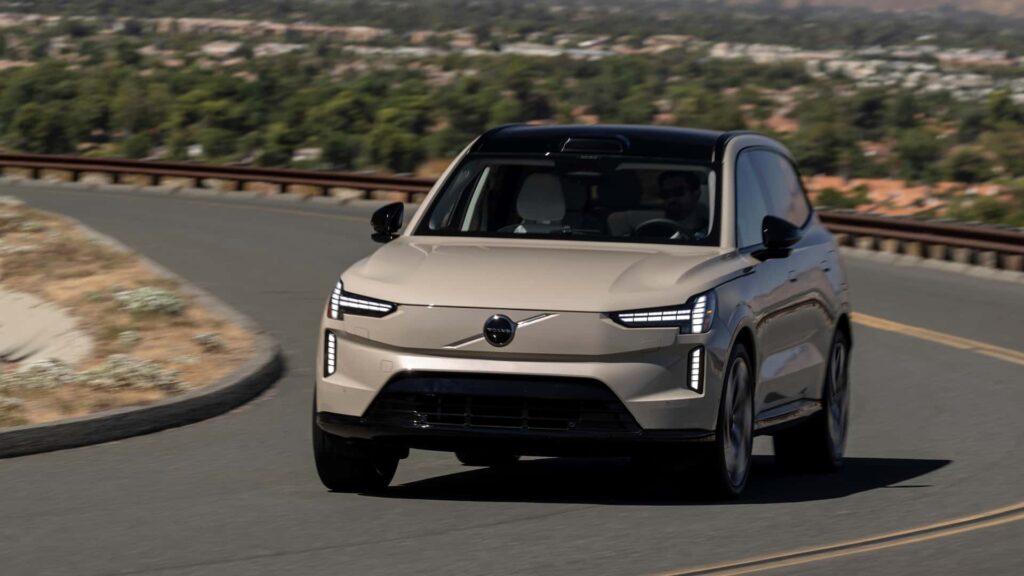Volvo is currently in search of a U.S.-based battery supplier for its EX90 electric SUV. The EX90, which is manufactured in South Carolina, currently sources its batteries from China’s CATL. However, due to the increased import tariffs on Chinese batteries, Volvo had to raise the price of the EX90 before it even hit the market. The starting price of the flagship electric SUV now stands at $81,290, which is $3,300 more than originally planned.
In an effort to minimize costs and potentially lower the selling price of the EX90, Volvo is exploring the possibility of partnering with an American battery supplier. Volvo Cars CEO Jum Rowan mentioned in a recent call with analysts that the company is actively looking for a local battery manufacturer in the U.S. to collaborate with.
Two potential candidates for this partnership are SK On from South Korea and AESC from Japan. SK On currently operates a battery manufacturing facility in Commerce, Georgia, which is in close proximity to Volvo’s South Carolina plant. The company supplies battery cells to major automakers like Volkswagen, Ford, and Hyundai. On the other hand, AESC is in the process of building two new battery factories in Bowling Green, Kentucky, and Florence, South Carolina. The Florence facility, which is near Volvo’s plant, will provide batteries for BMW’s American-made Neue Klasse EVs starting next year.
The Volvo EX90 is a three-row electric SUV based on Volvo’s Scalable Product Architecture 2 platform. It comes in two powertrain versions, both offering dual-motor all-wheel drive. The SUV features a 111-kilowatt-hour battery pack with an EPA-rated range of 300 to 310 miles. While the EX90 is not eligible for the federal tax credit when purchased with cash, it may qualify for the incentive when leased.
In conclusion, Volvo’s search for a U.S.-based battery supplier for the EX90 reflects the company’s commitment to reducing costs and enhancing the competitiveness of its electric vehicles. By partnering with local battery manufacturers, Volvo aims to overcome the challenges posed by import tariffs and offer a more affordable and sustainable electric SUV to customers.

